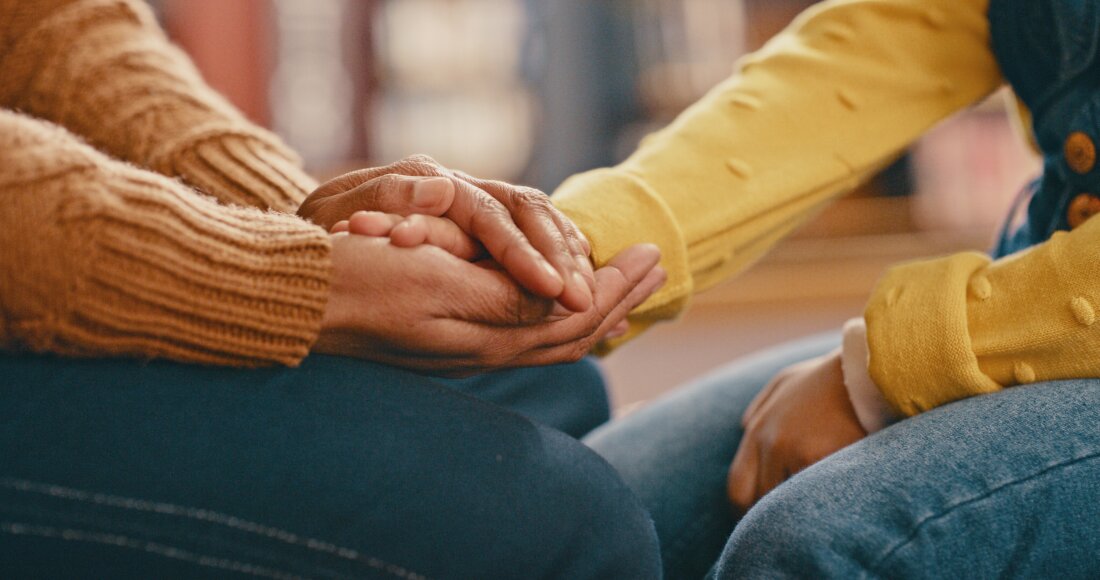
Grief is sophisticated, however writer Annie Sklaver Orenstein tells Morning Version there are easy methods to assist these grieving a loss.
Getty Photos
cover caption
toggle caption
Getty Photos
Annie Sklaver Orenstein was 25 when her brother Ben was killed whereas serving in Afghanistan.
She discovered solace in writing about him and others who’ve misplaced siblings. Earlier this 12 months, she printed All the time a Sibling: The Forgotten Mourner’s Information to Grief, a e-book about processing grief.

The duvet of All the time a Sibling: The Forgotten Mourner’s Information to Grief
Hachette E-book Group
cover caption
toggle caption
Hachette E-book Group
Orenstein spoke in regards to the complexities of loss and the way individuals reply within the second in a Morning Version interview with Michel Martin. We reached out to Orenstein within the wake of the pop singer Mariah Carey shedding each her mom and sister on the identical day. Carey’s mom was 87, based on public data, and lived in an assisted residing facility in Florida. Her sister was 63 and in hospice care in New York state.
Carey was reportedly estranged from her sister. And that bought us to serious about how sophisticated grief could be when there are a number of deaths, for instance, or estrangement — one thing that simply would not match frequent narratives of what grief ought to appear to be.
This interview has been edited for size and readability.
Martin: One of many causes you began writing about that is that you simply misplaced your brother in Afghanistan in 2009. And I simply need to make it clear that you weren’t estranged, that you simply had been, in actual fact, very shut. Let’s simply begin with shedding a sibling. You’ve got written that individuals act prefer it simply would not matter. Like, how so?
Orenstein: As soon as I began truly doing the analysis, I spotted that my expertise is definitely quite common — the diminishment of sibling grievers. And it is via a number of small actions. It is issues like individuals asking how your mother and father are doing, however they do not ask you ways you might be doing. Or in the event that they discover out you misplaced a sibling, the primary query is likely to be, “Had been you shut?” as in case your reply to that can decide whether or not or not you are allowed to be grieving or the extent to which you are allowed to be grieving. However we grieve imperfect individuals. We grieve imperfect relationships, generally much more so or extra sophisticated than if you happen to had been actually shut. And so these qualifiers, they’re probably not related, however they’ll make you query your personal grief and whether or not or not you might be allowed to grieve.
Martin: And including to that, it will get sophisticated when there may be estrangement, as we expect there was in Mariah Carey’s case. Are you able to speak extra about that, how that complicates issues, whether or not individuals know that or not in your circle?
Orenstein: You recognize, I believe there’s a feeling that, you already know, if you happen to’re estranged, you are in all probability not grieving. In some circumstances, that is likely to be true. There’s one thing referred to as abbreviated grief the place you simply do not grieve very a lot. That may occur if you happen to had a weak emotional attachment. You recognize, there’s a kind of grief referred to as anticipatory grief, the place you are primarily grieving the particular person whereas they’re nonetheless alive. And so once they die, you won’t grieve as a lot as you assume you’ll, however that is since you’ve already grieved them. And so in some circumstances of estrangement, you already know, that is likely to be what occurred, however in different circumstances, individuals usually maintain out a hope that there could be some reconciliation and demise takes away these alternatives.
Martin: Why do you assume we now have such a tough time on this nation supporting individuals via grief?
Orenstein: I believe in our nation, we’re uncomfortable with issues that we won’t repair, issues that we won’t remedy. You recognize, individuals need to say the best factor as a result of they need to repair it and so they need to make you’re feeling higher. And so grief makes us actually uncomfortable as a result of there’s nothing you possibly can say that can repair it.
Martin: So let’s discuss what you are able to do to assist somebody who has misplaced a sibling or in Mariah Carey’s case, has misplaced a sibling and has misplaced a guardian, or is coping with this, what you’ve got referred to as this advanced grief. What are some issues to not say? Are there some issues you could say or do, even when you already know you possibly can’t repair it?
Orenstein: We won’t grieve for another person as a lot as we frequently need to. However what we will do is go over and do their dishes. We are able to go grocery purchasing for them. We are able to drop off dinner. We are able to do small issues to cut back that overwhelm and overload in order that our brains and our feelings do have the bandwidth and capability to course of what is going on on. So a number of what we will do is present up. Neighborhood assist is confirmed. It’s a large means to assist somebody who’s grieving.
This digital article was edited by Obed Manuel.
